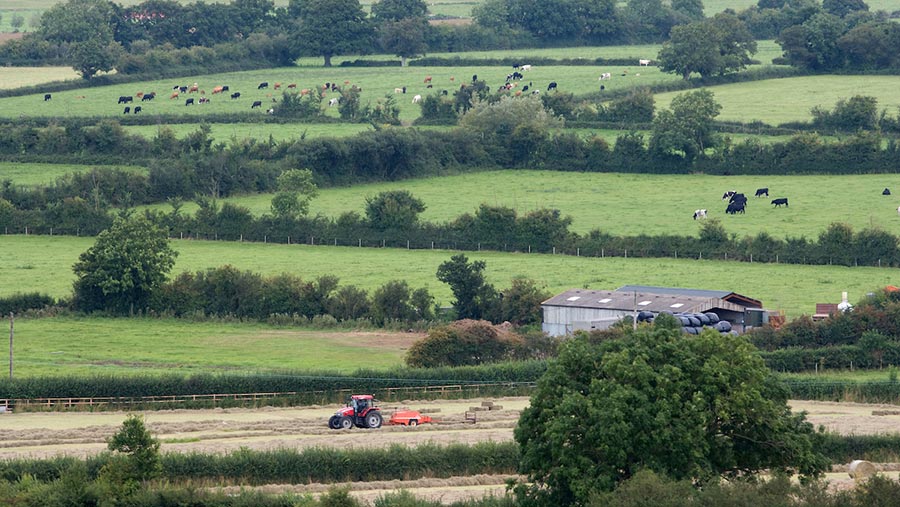Opinion: ‘Industrial’ is no insult when it comes to productive farming
 © Tim Scrivener
© Tim Scrivener “Industrial, adjective: Very great in extent or amount… an activity in which a great deal of effort is expended.”
With 70% of the UK land area occupied by farming, and with me finishing work exhausted most evenings, the attempted insult frequently levelled at modern agriculture that it’s “industrial” seems both pretty banal and pretty accurate, whether you run conventional or organic systems.
See also: We must cultivate trust in farming, says Joe Stanley
Despite being a common slur for decades, the use of this phrase has reached a crescendo in the past few years, as the UK’s planned departure from the Common Agricultural Policy has seen an unsightly scramble by innumerable special-interest groups to push their own narrow (and generally regressive) ideologies and, more importantly, grab a slice of the future Defra budget.
It’s a nonsense phrase, of course. Around me, the National Forest covers 200sq miles and consists of 8.9 million trees planted since 1990. Pretty “industrial” in scale, you might say.
But that is lauded, while “industrial” food production is criticised by those who frankly don’t understand that it’s the only thing standing between their comfortable existence and a life of grinding subsistence farming.
And if our ability to produce food at scale can be considered “industrial”, then so too can our ability to steward and improve our natural environment – “industrial conservation”, anyone?
#IndustrialFarming
Farmers on Twitter recently adopted with spontaneous enthusiasm and good humour #IndustrialFarming when sharing images of the multitude of habitats and environmental measures on their farms co-existing with food production.
This brief, unofficial campaign gave many a great deal of satisfaction and enjoyment as they proudly shared images of their environmental success stories.
As a bonus, this stimulated paroxysms of rage in some self-proclaimed “conservationists”, who seemed beside themselves that farmers were taking ownership of one of their favourite insults.
This made me think. I describe myself as a farmer – which is how most of us would simply identify.
But as we all know, “farmer” is a job description of almost quantum complexity, and as is patently obvious to anyone who cares to acknowledge it, the wellbeing of the vast majority of our shared natural environment is, and will largely continue to be, in the stewardship of farmers.
Now, if an urban keyboard warrior can sit in his bathroom of a morning doing little more than retweeting the ravings of certain well-known eco-warrior celebrities, and in so doing describe themselves as a “conservationist”, than I most certainly can as well.
To return to the dictionary once again – “Conservationist, noun: a person who advocates or acts for the preservation and protection of the environment and wildlife.”
Not only are farmers legally required to physically act, but most go above and beyond this baseline, whether as part of an agri-environment scheme or via voluntary measures such as Championing the Farmed Environment.
Indeed, I know of many farmers who do much more than I to enhance their little patches of nature, often at considerable financial cost, yet still they are pilloried by those who do nothing but criticise from a distance while claiming the moral high ground.
So, farmers of Britain, update your social media profiles, your business cards and your small talk.
Whether you realised it or not, you’ve got a proud new job title – “industrial farmer and conservationist”. If only it came with a pay rise.
